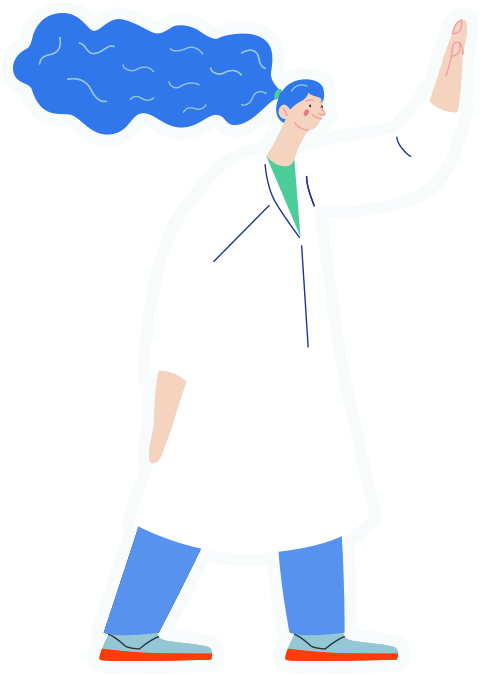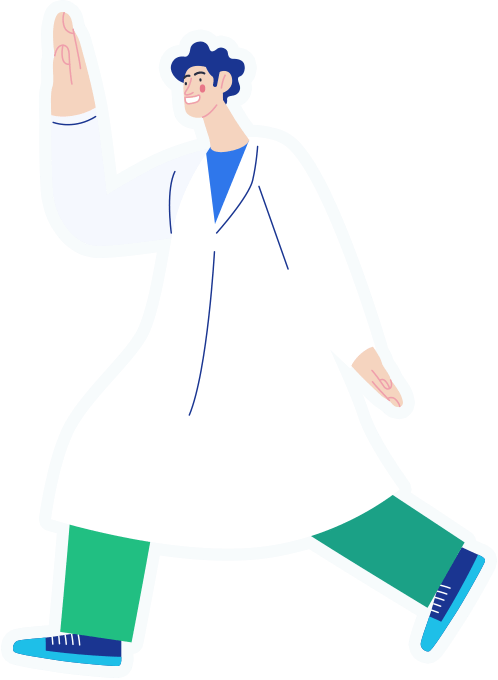—what they like to do, for instance, or if they like math and science?
Or what time of day are they most productive in their research?
Check out these responses to the get-to-know-you survey from 115 people who work at BDR and R-CCS!

Questions for all staff
| R-CCS Research Team, Unit | 21 people |
|---|---|
| R-CCS Operations and Computer Technologies Division ※ | 5 people |
| R-CCS Admin | 20 people |
| BDR Research Team | 51 people |
| BDR Admin | 14 people |
| Kobe and Osaka Administrative Divisions | 6 people |
*Some respondents in the R-CCS research team, unit and the R-CCS operations and computer technologies division categories have multiple affiliations.
-
20s
-
30s
-
40s
-
50s
-
60s
-
Do not want to specify
| 20s | 6% |
|---|---|
| 30s | 33% |
| 40s | 35% |
| 50s | 16% |
| 60s | 7% |
| Do not want to specify | 3% |
-
Japan
-
Other
Other:India (2), United States of America, Korea, China, Brazil, Indonesia, France, Turkey
| Japan | 92% |
|---|---|
| Other | 8% |
| Indoor hobbies (reading, cooking, etc.) | 65 people |
|---|---|
| Finishing off accumulated housework | 54 people |
| Having fun with family | 48 people |
| Outdoor hobbies (sports, mountain climbing, etc.) | 35 people |
| Research-related chores (document preparation, checking email, etc.) | 25 people |
| Tired and sleeping | 25 people |
| I do research even on holidays! | 25 people |
I won 4th place in the European mahjong championships.
Back during my student and postdoc years, I did mountain climbing, outdoor activities, and explored the world. I also explored caves.
I’ve entered an off-road race abroad before.
I was in the broadcasting club at school. I’m great at making announcements!
I was a part-timer at a consumer game production company
I was a bridal show producer.
I worked at a securities firm.
I worked as a designer of building equipment in my previous job.
I am a clinician (psychiatrist) with a background in physics.
Before coming to RIKEN, I was a newspaper reporter.
I was a community (city) planning consultant. I am also qualified as a psychological counselor.
| I have a cup of coffee or tea | 85 people |
|---|---|
| I take a break | 51 people |
| I chat with my colleagues | 32 people |
| I get some exercise | 31 people |
| I listen to music | 28 people |
| I do some different research | 18 people |
| I check and/or post on social media sites such as Twitter, etc. | 17 people |
| I read research papers | 14 people |
| I do some different programming | 14 people |
| Other (Go on a walk, take a nap, clean, eat snacks, smoke, do zazen meditation, etc.) | 12 people |
Questions for Researchers
-
I like it and I’m good at it
-
I like it but I’m not good at it
-
I don’t really care, I have no interest in it
-
I don’t like it but I’m good at it
-
I don’t like it and I’m not good at it
| I like it and I’m good at it | 44% |
|---|---|
| I like it but I’m not good at it | 44% |
| I don’t really care, I have no interest in it | 12% |
| I don’t like it but I’m good at it | 0% |
| I don’t like it and I’m not good at it | 0% |
| I like it and I’m good at it | 18% |
|---|---|
| I like it but I’m not good at it | 47% |
| I don’t really care, I have no interest in it | 13% |
| I don’t like it but I’m good at it | 2% |
| I don’t like it and I’m not good at it | 20% |
Linear algebra, differential and integral calculus, and probability were popular responses this year! We also received the following comments.
Linear Algebra: I learned about matrices and vectors in High School Math II and was attracted by their simplicity and variety of applications. After many twists and turns, it became my specialty about 25 years ago.
I would say mathematical logic. I can’t say I understand it very well, but it’s like looking into an abyss.
I like math because it allows me to think of elegant answers. I became interested in advanced algebra when I read a book in high school about how to cut cones to make ellipses, parabolas, and hyperbolas.
Mixing complex function theory, number theory, and linear algebra to make CHAOS (ha ha)!
-
I loved reading it
-
I read it occasionally
-
I never read it
| I loved reading it | 23% |
|---|---|
| I read it occasionally | 35% |
| I never read it | 42% |
| I loved reading it | 7% |
|---|---|
| I read it occasionally | 21% |
| I never read it | 72% |
| Physics | 24 people |
|---|---|
| Chemistry | 6 people |
| Biology | 7 people |
| Geology | 4 people |
| I don’t particularly like any of the usual science subjects | 2 people |
| Physics | 18 people |
|---|---|
| Chemistry | 11 people |
| Biology | 33 people |
| Geology | 5 people |
| I don’t particularly like any of the usual science subjects | 3 people |
The area of physics that was popular was mechanics, including classical and quantum mechanics, and the areas of biology that were popular were biochemistry and genetics! Computer science was another popular response. We also received the following comments.
【Physics and Biology】It was interesting to see that in both biology and physics, there are laws in the methods and results of the experiments.
【Physics】Because the laws of physics are beautiful.
【Physics and Chemistry】Perhaps I like these fields so much because it’s beautiful how familiar phenomena can be described by their equations. Biology is interesting, but physics and chemistry are exciting because you can use new principles to create something unknown.
【Physics and Chemistry】I always liked the diversity of chemistry and how chemistry experiments really seemed like real, science-y experiments.
【Biology】Genetics, because the process of figuring out genetic probabilities is like a fun game.
【Biology】Biochemistry, because it’s interesting to see how complex life phenomena are explained as relatively simple chemical reactions.
【Biology】Living things. Whenever I see something new that has been learned through research, I think that evolution is amazing. It is said that organisms adapt to their environment in a makeshift way by modifying on what existed before, but I often find these adaptations amazing, makeshift though they may be. However, there are also harmful effects that come from this adaptation, and the good and the bad are exquisitely balanced in the creation of living things, so it is truly profound to see how a human being can’t just come up with an idea to somehow remove the harmful effects.
-
I go every day
-
I go into work about half of the week.
-
I go into work 1 or 2 times a week.
-
I go into work a few times a month.
-
I rarely go into work.
| I go every day | 12% |
|---|---|
| I go into work about half of the week. | 8% |
| I go into work 1 or 2 times a week. | 15% |
| I go into work a few times a month. | 38% |
| I rarely go into work. | 27% |
| I go every day | 62% |
|---|---|
| I go into work about half of the week. | 15% |
| I go into work 1 or 2 times a week. | 8% |
| I go into work a few times a month. | 2% |
| I rarely go into work. | 13% |
Though RIKEN has been recommending for personnel to telework as much as possible during the COVID-19 pandemic, these results indicate that BDR researchers, who conduct many in-lab experiments, seem to come into work more often than others. R-CCS researchers, on the other hand, can do their research by connecting to Fugaku or their lab servers from home, so their frequency of onsite work is lower. The three R-CCS personnel who go to work in person every day are all in the R-CCS Operations and Computer Technologies Division; they do management work to ensure that Fugaku runs smoothly.
【Onsite about half the week】Managing and checking up on experimental equipment.
【Onsite once or twice a week】When I need a high-performance PC, when my library order comes in, and when there are wet experiments to be done.
【Onsite a few times per month】Stamping documents, collecting documents, and printing papers is about all I do onsite.
【Onsite a few times per month】Miscellaneous work like turning in and picking up documents or server maintenance.
【Onsite a few times per month】When I need a stable network for things like online conference presentations.
【Almost never/never onsite】I am working remotely from France currently. I will go to work more often (probably everyday) once I am in Japan.
| My experience as a child (up to elementary school age) (I enjoyed observing insects and plants, doing astronomical observation, etc.) | 17 people |
|---|---|
| I was influenced by TV, movies, magazines, books, etc. when I was a child (up to elementary school age) | 9 people |
| I enjoyed my classes in junior and senior high school and wanted to master them | 15 people |
| Extracurricular activities outside of classes when I was a junior or senior high school student (e.g., extracurricular/club activities, field trip to workplaces, Koshien with XX, etc.) | 7 people |
| I was influenced by TV, movies, magazines, books, etc. when I was a junior or senior high school student | 2 people |
| Through classes and practical training when I was a university student (before being assigned to a laboratory) | 14 people |
| I was influenced by TV, movies, magazines, books, etc. when I was a university student (before being assigned to a laboratory) | 5 people |
| I enjoyed doing research after being assigned to a laboratory | 27 people |
| I was influenced by university teachers | 12 people |
| This field was recommended to me by university teachers, friends, and family | 3 people |
| After I got a job, I thought something was different | 9 people |
| Before I knew it, I became a researcher | 20 people |
| Other | 1 people |
| Early morning (around 5:00–8:00) | 10 people |
|---|---|
| Morning (around 8:00–12:00) | 25 people |
| Afternoon (around 12:00–15:00) | 11 people |
| Late afternoon (15:00–18:00) | 24 people |
| Evening (18:00–22:00) | 25 people |
| Night time (22:00–5:00) | 7 people |
| Time of day doesn’t make a difference. | 15 people |
-
I did this actively
-
I did this a little but quit soon after
-
I did not do this
| I did this actively | 30% |
|---|---|
| I did this a little but quit soon after | 15% |
| I did not do this | 55% |
A few of us got together to read thick English-language textbooks. Many of our group members went on to get doctorates and become researchers.
I do better at reading in short-term concentrated bursts than when I try to keep reading on my own.
I was able to develop my English skills in a practical way.
I did this kind of thing as an undergraduate, but in a group of only undergraduates, there was just so much we didn’t understand, so it didn’t go very well.
Explaining the basics in your own words to others leads to a deeper understanding.
It made me realize how much more I still needed to learn.
It was beneficial to learn about how others further along in their careers study and learn.
Having discussions with my peers was what I found most enjoyable.



I was in a band! (Vocals, guitar, sax, drums) (BDR research team member, 30s; R-CCS research personnel, 40s; others)